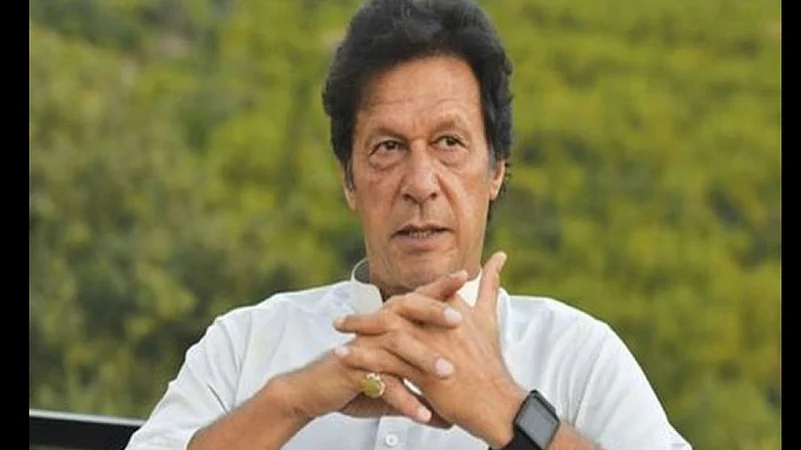Prime Minister Imran Khan has dismissed the “suspicion” of Western countries about the USD 60 billion China-Pakistan Economic Corridor (CPEC) and Gwadar port, saying the projects were a great opportunity for regional development, the state media reported on Thursday. In an interview with Dr. Eric Li, Director of the Advisory Committee of China Institute of Fudan University, Khan also said that normalising ties with India was the priority of his government after assuming power.
However, he said that the Kashmir dispute remained a big issue between the two countries, according to the excerpt of the interview recorded during his recent visit to China from February 3-6 and reported by state-run Associated Press of Pakistan (APP) on Thursday. India has repeatedly told Pakistan that Jammu and Kashmir "was, is and shall forever" remain an integral part of the country. It also advised Pakistan to accept the reality and stop all anti-India propaganda.
India has told Pakistan that it desires normal neighbourly relations with Islamabad in an environment free of terror, hostility and violence. India has said the onus is on Pakistan to create an environment free of terror and hostility. "The suspicion about the CPEC and Gwadar makes no sense…We invite other countries to join as well,” Khan said, adding that the projects would prove beneficial not only for Pakistan and China but for the entire region.
Khan said that these projects would help in poverty alleviation and wealth creation. India has protested to China over the CPEC as it is being laid through Pakistan-occupied Kashmir (POK). China’s takeover of Sri Lanka’s Hambantota port on 99 years’ lease for USD 1.2 billion debt swap drew international concerns over Beijing acquiring strategic assets far away from home by providing heavy loans and investment to smaller nations.
Asked about the accusations of the US and Europe on the genocide of Uyghurs in China’s Muslim-majority Xinjiang province, Khan said the reports received from Pakistan’s envoy in China after his visit to the province were “completely different”. Beijing is hosting the Winter Olympics amidst a diplomatic boycott by the US, European Union and several western countries over their allegations of human rights violations in Xinjiang, including incarceration of over a million Uygur Muslim men and women in camps.
China denies the allegations but defends the camps, describing the facilities as re-education centres aimed at de-radicalising sections of the Uyghur Muslim population from extremism and separatism campaign carried out by the East Turkistan Islamic Movement (ETIM). On Pakistan’s ties with China, Khan said the all-weather friendship between the two countries withstood the test of time. For 70 years, he said, the relations with China had been consistent regardless of the government in power.
To a question on balancing ties with the US and China, Khan said Pakistan would like to replicate the role it had played in bringing closer the two rival blocs in the 70s. When sought comments on the situation after the withdrawal of US troops from Afghanistan, he said Americans did not learn from the history of Afghans and the situation could lead to a humanitarian crisis.
"When you have no clear aims why you invaded a country, it is going to be a failure. Anyone who thinks of controlling the Afghan people, has not read their history,” he said, adding that the whole mission of the US in Afghanistan was “based on a false premise”. After years spent in an attempt to punish the Taliban government, a huge humanitarian crisis is unfolding in Afghanistan, he added. “If Afghanistan descends into chaos because of the sanctions, as its 75 per cent economy depends on foreign aid, this will be the biggest man-made human disaster,” he said.
With PTI Inputs


























